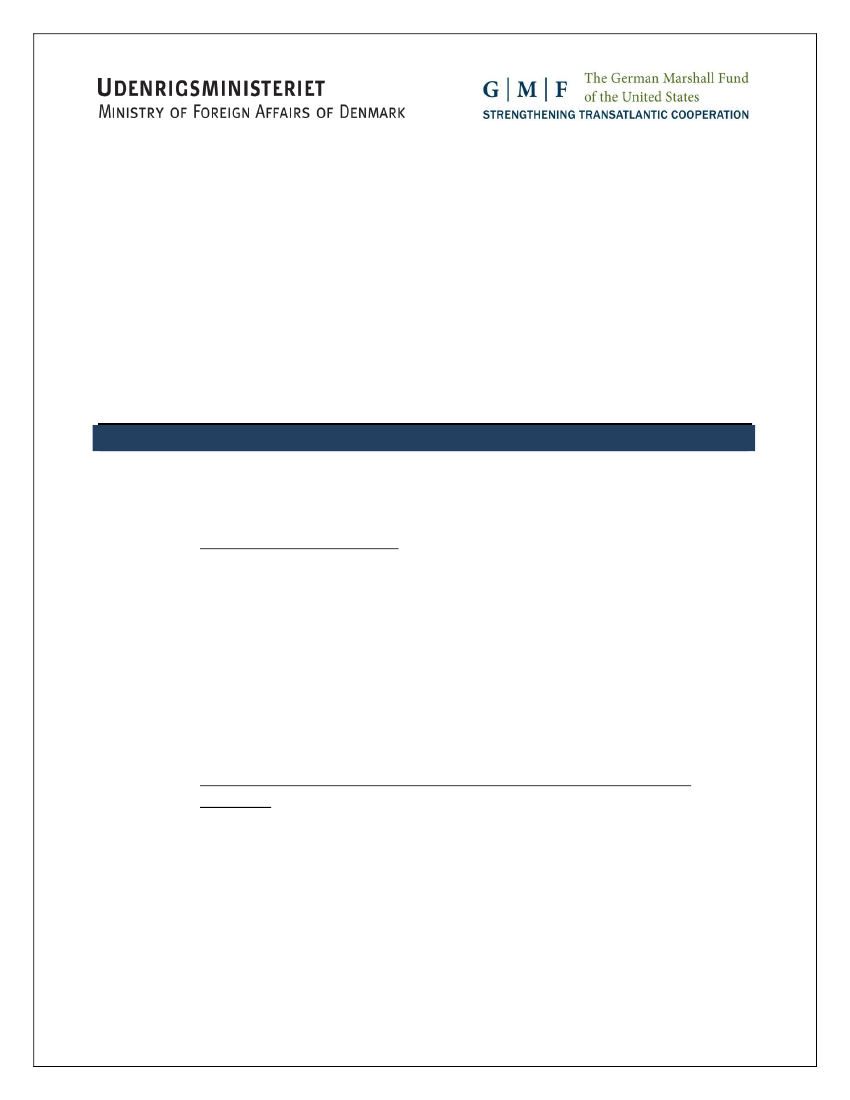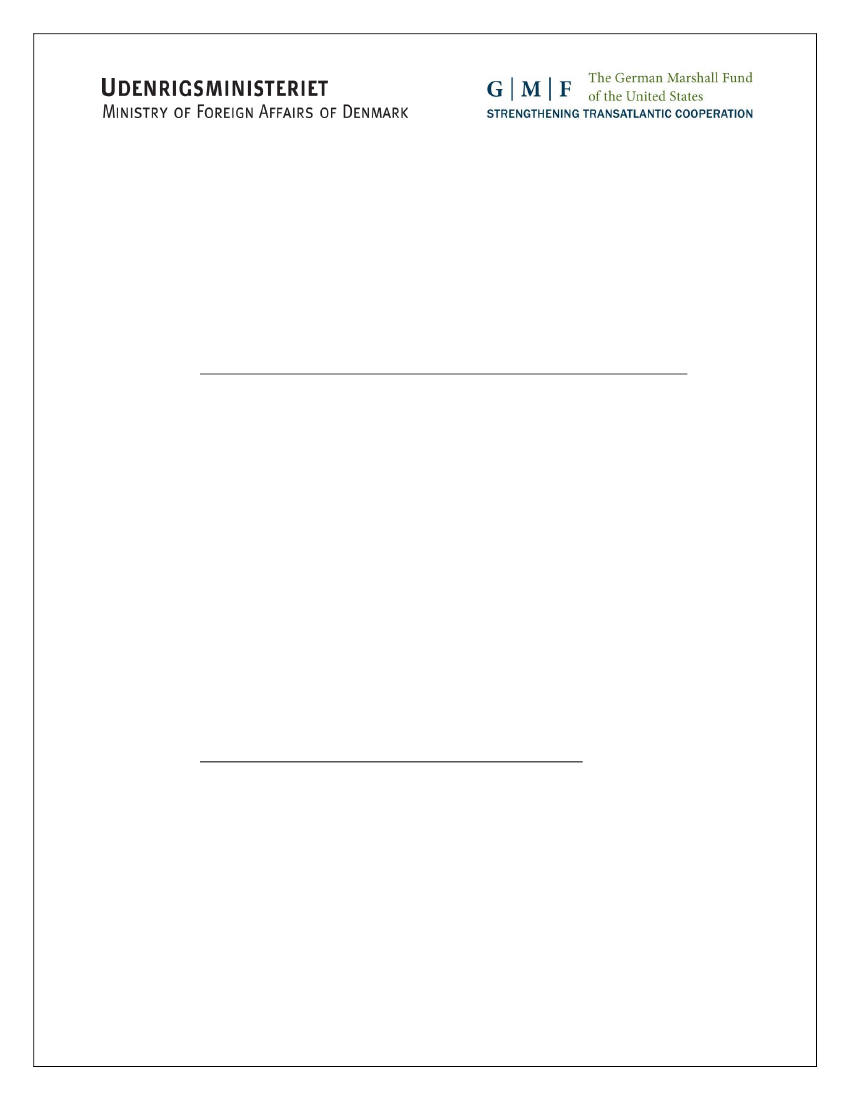Europaudvalget 2014-15 (1. samling)
EUU Alm.del Bilag 62
Offentligt
Copenhagen Energy Security Dialogues
Copenhagen
November 2, 2014
“The Global Challenge of Energy Security”
Organized in partnership with the Ministry of Foreign Affairs, Denmark
DRAFT AGENDA
Sunday, November 2
1330
Participants gather at Eigtveds Pakhus
Asiatisk Plads 2 G, 1448 København K
1400 – 1430
Welcome and Keynote Address
(On the record)
Opening Remarks:
Martin Lidegaard
Minister of Foreign Affairs, Denmark
Keynote Address:
Ban Ki-moon (Confirmed)
Secretary-General of the United Nations
1430 – 1600
Session I – Energy Needs from Today until 2050: Energy at the Core of Global
Challenges
Eigtveds Pakhus
(Off the record)
What is the state of energy demand and supplies today and how will these needs evolve until
2050? How will energy demand be distributed globally? What is the role of energy in today’s most
significant challenges, from development and climate change to human security and geopolitical
stability? How are the energy challenges of the North Atlantic similar and different from the
challenges in emerging economies? What situations might be analogous? How do the energy
security and sustainability priorities align in mature and emerging economies? How do countries
navigate competing energy and security priorities?
Format:
A panel of four speakers who each give eight minute introductory remarks followed by a
moderated discussion between all participants.
1600 – 1630
1630 – 1800
Coffee Break and Afternoon Snack
Session II – What’s Working: Practical Lessons in Improving Energy Security
Eigtveds Pakhus
(Off the record)
Which energy challenges and lessons lend themselves best for transatlantic and global
cooperation? What information do participants need in order to make better energy, development
and security decisions? This session will seek to answer these questions by investigating practical
lessons for improving energy security through three technologies: energy efficiency, liquefied
natural gas, and digital telecommunications and energy links.
Format:
Each one of the three technological solutions receives 10-15 minutes for a presentation
followed by an open discussion between participants on the applicability of the various
technologies.
A. Energy Efficiency
B. Liquefied Natural Gas
C. Digital Technologies
1800-1845
Conclusions – Key Energy Policy Challenges and Next Steps
Eigtveds Pakhus
(Off the record)
What are the common underlying issues that are at the nexus of energy, development, and
security policy? Where is there the largest overlap between the energy, development and security
communities on these issues? What actions can be taken?
Format:
A moderated round-table conversation with a rapporteur serving a key role. Key global
institutions will take an active role in defining how the lessons from the meeting can be applied in
their contexts. Such organizations include the EU, SE4All, ESMAP, and the UN.

